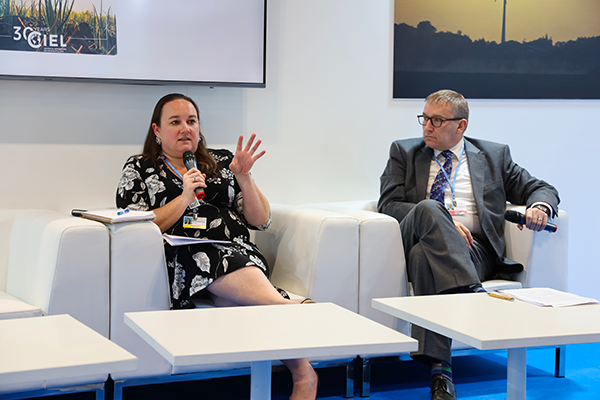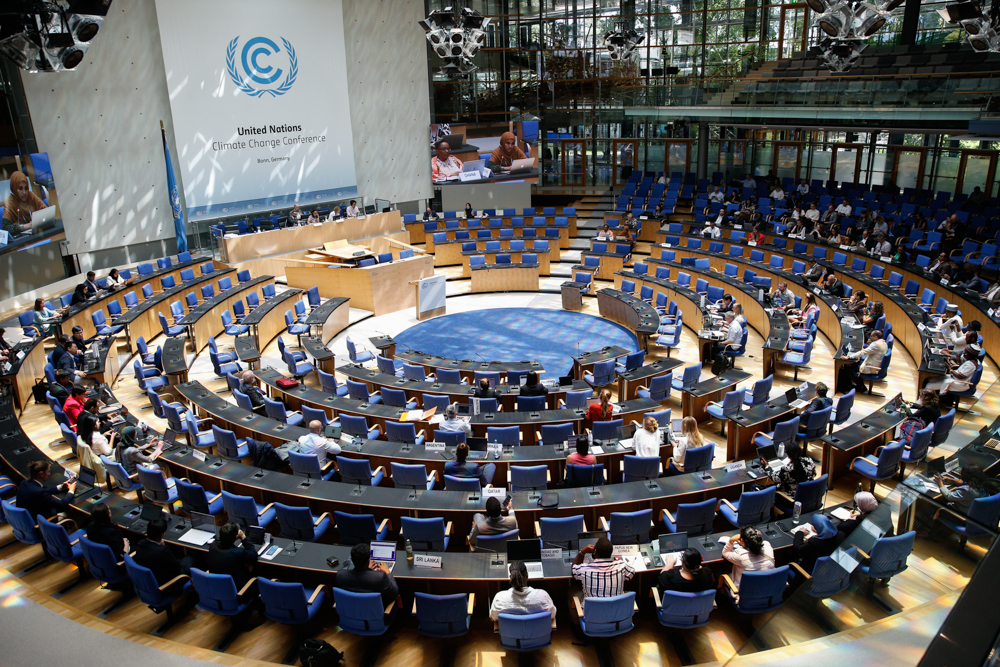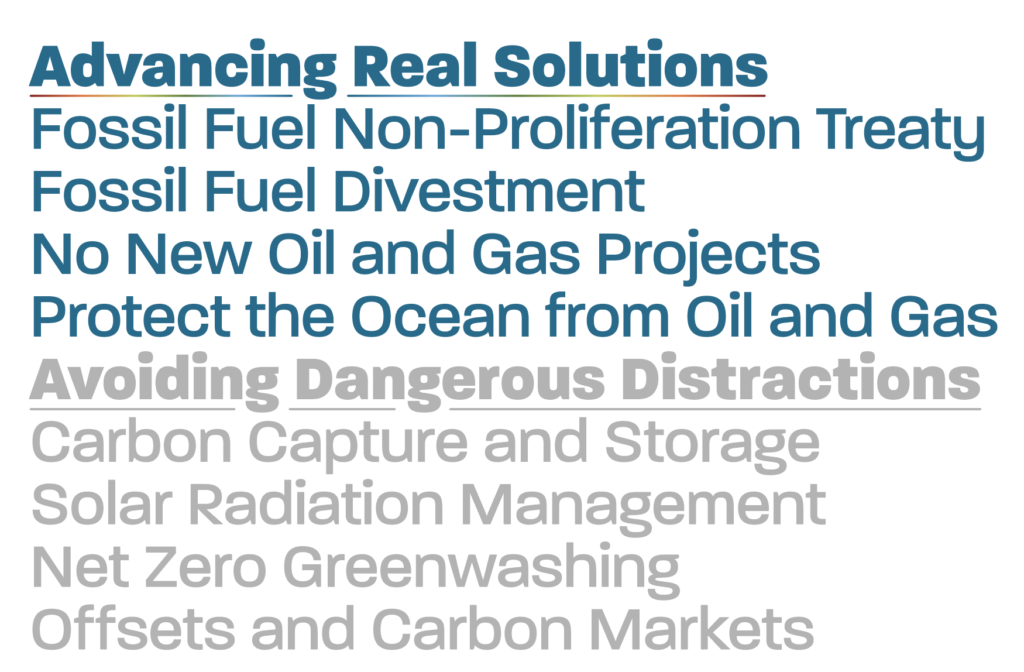Article 6 of the Paris Agreement establishes a carbon market mechanism, among other approaches, for countries to cooperate to reach their climate goals. Carbon markets are trading systems where credits issued for greenhouse gas emissions reduced or avoided in one place can be bought or sold to “offset” ongoing emissions elsewhere. Such schemes enable widespread greenwashing through mathematical manipulation, allowing countries and companies to claim to be
mitigating their climate impacts by paying for another’s climate actions, without genuinely reducing their own emissions. But the concept of offsets rests on a false premise that all tons of carbon are equal, and that we can trade reductions ‘here’ for emissions ‘there,’ when what we truly need is transformation everywhere.

Since the adoption of the Paris Agreement, CIEL has worked to ensure that Article 6 does not undermine real, necessary, human rights-compatible climate action. With partners, CIEL has educated negotiators on the flaws in carbon trading schemes, the growing credibility crisis plaguing carbon credits, and their history of harming people and ecosystems, as in the case of the Alto Maipo and Barro Blanco hydroelectric projects in Chile and Panama, respectively. In a significant win this year, Parties at COP27 rejected an initial proposal to include carbon “removals” in the carbon market, which could open the door to dangerous technological interventions, like geoengineering, jeopardizing climate action and human rights.



